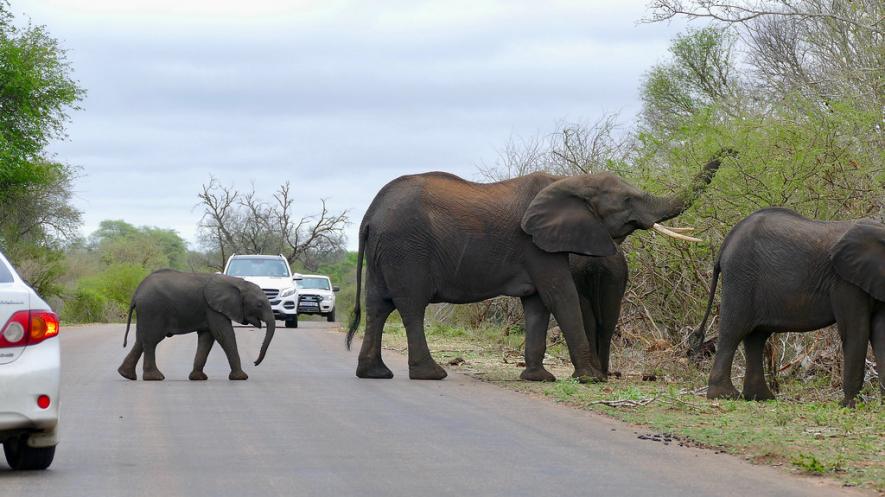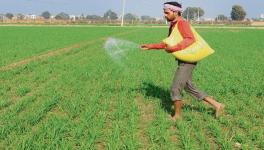Human-Animal Conflict Increasing in Kerala, Farmers Demand Scientific Measures for Prevention

Representational Image. Image Courtesy: Flickr
The human-animal conflict has been increasing in Kerala for the last 10 years, resulting in deaths and injuries to farmers close to the forest areas and damage to crops. A total of 1,233 people have lost their lives to wild animal attacks since 2011.
Wayanad and Palakkad districts are particularly prone to wild animal attacks, but all 13 districts of Kerala except Alappuzha have a history of such attacks, including damage to crops.
Recently, the number of attacks by elephants, tigers and wild boars has been increasing in the state. The department of forest has attributed the rise to the increase in the number of wild animals, thanks to the conservation policies and strict implementation of anti-poaching laws.
But the farmers are in the firing line and are craving the attention of the union and state governments. The lack of provisions for compensating for the loss of lives and crop damages is haunting the farmers, forcing them to withdraw from farming.
The Kerala Karshaka Sangham, the state unit of the All India Kisan Sabha (AIKS), has demanded timely intervention of governments, the union government in particular, to bring about a scientific solution to the unending menace faced by the farmers.
FREQUENT WILD ANIMAL ATTACKS
The forest and district authorities of Palakkad district are on the hunt for Palakkad Tusker-7 (PT-7). In contrast, their counterparts in Wayanad district tranquillised Pandalur Makhna (PM-2) recently, the frequent invaders in these districts. Besides, the farmers suffer from elephant herd threats.
Tiger attacks are rampant in Wayanad, with the number of lives lost increasing to 6 in the last eight years. Recently a 51-year-old farmer died of tiger attack injuries in Suthan Bathery in the district. The government of Kerala announced a solatium of Rs 5 lakh to the family of the deceased.
The forest department has recorded a whopping 34,785 wild animal attacks since 2011, leading to 1,233 deaths and 6,803 injuries. In the last 15 years, around 1,500 people have lost their lives in human-animal conflict-related incidents.
Together with the attack on human beings living close to the forest areas, the quantum of crops being damaged is also on the rise. The increasing number of wild boars, monkeys and peacocks contributes to this.
The AIKS central committee demanded sensible intervention of the union government under which the departments of forests and wildlife fall.
"The loss suffered by the farmers in the adjacent forests is immense since thousands of hectares of fertile land have been left fallow due to wild animal menace. The people in the affected areas are living under extreme duress and mental trauma. This is a serious situation that demands immediate relief and comprehensive, permanent solution," the AIKS statement said.
'NEED TO SAVE FARMERS AND FARMING'
The outcome of the frequent wild animal invasion is the farmers withdrawing from farming in the areas close to the forests. The proximity of the farmlands to the forest areas of the Western Ghats running across Kerala is among the reasons for several invasions.
The Wayanad Wildlife Sanctuary, part of the Nilgiris Biosphere, is surrounded by Nagarhole National Park and Bandipur National Park in Karnataka by Mudumalai National Park in Tamil Nadu. Palakkad district is also home to protected areas, including the Silent Valley National Park and Parambikulam Wildlife Sanctuary.
"The increasing wild animal attacks are jeopardising the farmers in most of the districts in Kerala", said Valsan Panoli, the general secretary of the Kerala Karshaka Sangham.
"The strict implementation of laws to protect the forests and wild animals have increased the population of animals, leading to the increase in attack on farmers and farmlands," he said.
Around 120 villages, with a population of more than 30 lakhs, lie close to the protected areas, making them prone to wild animal attacks.
"The union government is less receptive to the issues faced by such farmers. We urge the government to include provisions to ensure compensation for wild animal attacks and crop losses", Valsan Panoli said.
The AIKS leaders, after holding protests in New Delhi in July 2022, met Bhupendra Yadav, the minister for Environment, Forest and Climate Change and submitted their charter of demands.
The AIKS also noted the urge to generate revenue from forests by felling natural species and replacing them with exotic species as another reason for wild animals entering human habitats.
"These exotic species cause ecological damage and make the forests hostile to local wildlife. This is a major reason for the lack of food and water inside forests for wildlife," the AIKS statement noted.
'SCIENTIFIC MEASURES NEEDED'
The farmers association has long been demanding the isolation of farm and residential areas from the forest lands to prevent the entry of wild animals. The forest areas, including the protected areas, lie close to the farmlands, given the geography of the state.
"Building stone walls, fences and trenches along the forest boundaries based on scientific proofs would be the possible method to save the farmers and farming. The practice of releasing captured monkeys and peacocks closer to the farmlands must end," Valsan Panoli said.
The department of forests of the government of Kerala is also contemplating several measures to bring an end to the continuous threat faced by the farmers. The minister of forest, AK Saseendran, said that a master plan would be prepared by month's end.
The minister also informed that the government would approach the Supreme Court seeking animal birth control and plans for joint actions with the neighbouring states. The influx of animals from Tamil Nadu and Karnataka is also cited as the reason for the increasing invasion of Kerala.
Get the latest reports & analysis with people's perspective on Protests, movements & deep analytical videos, discussions of the current affairs in your Telegram app. Subscribe to NewsClick's Telegram channel & get Real-Time updates on stories, as they get published on our website.























